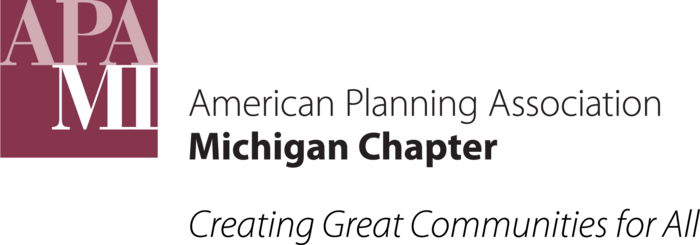What is My Role?
Planning Commission
The Planning Commission provides community leadership on local planning and development policy. The Planning Commission is an appointed body that advises the legislative body on planning matters. The Planning Commission has the responsibility to prepare a master plan, which influences the regulations and standards in the zoning ordinance and any future changes to it.
The Planning Commission is also the primary body responsible for approval of Site Plans. Commissioners are responsible to ensure that new development fits the community’s vision for a given site, with help from professional staff or consultants. Planning Commissions also have responsibility for Special Use approvals. In some communities, they have the sole power to approve or deny Special Use applications, while in others they recommend approval or denial to the elected officials.
Finally, the Planning Commission is the main forum for discussion of changes to the Zoning Ordinance text and map. Changes can be proposed by property owners, the general public, or the Planning Commission itself, but regardless, the Planning Commission must hold a public hearing before recommending any zoning changes to the community’s elected body.
Zoning Board of Appeals
The Zoning Board of Appeals is designated to hear appeals on administrative matters relating to the community Zoning Ordinance. This can include a property owner appealing a decision he or she feels is too stringent or is inconsistent with the zoning ordinance, a property owner requesting a variance, or someone seeking clarification or interpretation of the zoning ordinance.
Members of a Zoning Board of Appeals should always keep in mind the State-defined criteria for granting a variance. Variances should only be granted when the applicant can show “practical difficulty,” meaning a unique situation on their property that functionally prevents them from complying with the Zoning Ordinance.
Elected Officials
Elected officials in a community comprise the legislative body and this body is accountable to all citizens of the community. The legislative body receives advice on planning and development matters from the Planning Commission and is the final approving body for some planning and zoning issues – exactly which ones vary by community. The legislative body can and often will adopt the master plan on recommendation of the Planning Commission, which has the benefit of strengthening the master plan as public policy.
Elected officials should make an effort to understand their community’s planning goals, policies, and procedures. They can direct the Planning Commission to address certain issues, although they cannot ethically pressure Planning Commissioners into a particular decision.
Professionals
Professional planning staff and consultants provide technical expertise on planning and zoning matters to local Planning Commissions and elected officials. A professional planner can help write a master plan or zoning ordinance, provide technical review of proposals coming before the Planning Commission, and administer the zoning ordinance. Professionals are educated and trained in planning principles and practices, and conduct planning activities all day every day, so they are an important resource for the “citizen planners” on a community’s boards and commissions.

